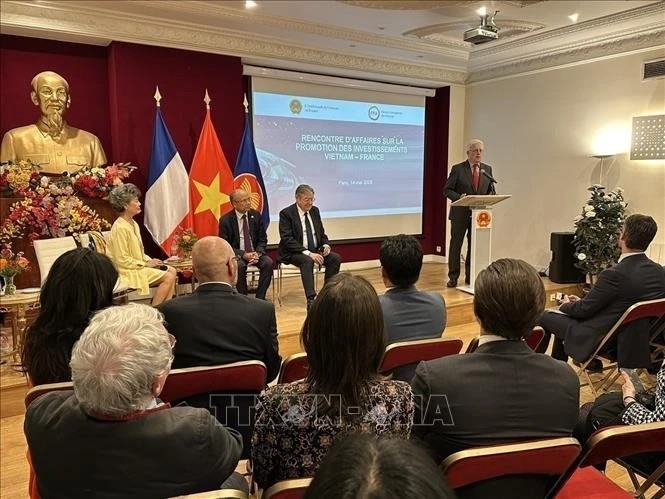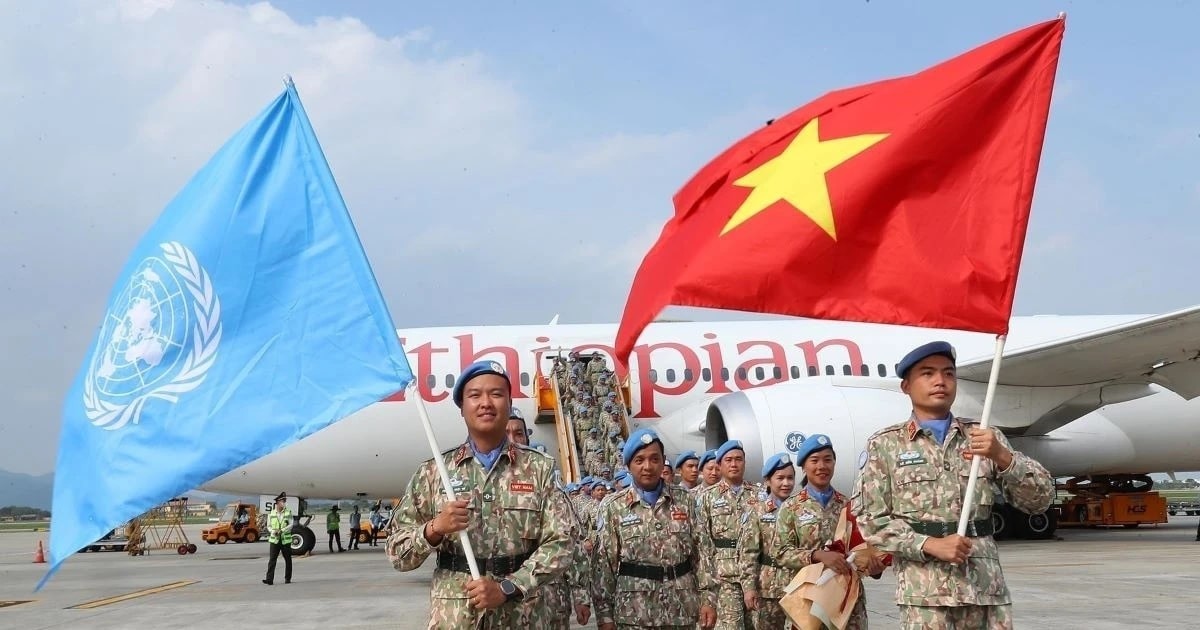Vietnam Consistently Implements a National Defense Policy of Peace and Self-defense
| Vietnam Attends Asia’s Biggest Airshow in Singapore | |
| Vietnam, Japan Cooperate Over National Defense |
In 2014, Vietnam sent its first military officers to join the United Nations peacekeeping force, and in 2019, published the Vietnam Defense White Paper. These actions underscore Vietnam’s transparency and consistency in maintaining a peaceful, self-defense-oriented policy, choosing to stand on the side of justice. Amidst complex international developments, conflicts, and intense strategic competition among major powers, ensuring a peaceful environment is crucial for Vietnam to develop stably and achieve its goal of building a strong and prosperous nation.
Among the possessions carried by the blue beret soldiers of the Vietnam People's Army on UN peacekeeping missions, one item holds sacred significance: the national flag. With the mission's consent, the flag is proudly displayed where they live. Amid the chaos of war, with gunfire still echoing, the image of the Vietnamese flag fluttering in the sun and wind has been compared to a refreshing summer rain that revives barren lands. The flag, soaked with the blood and bones of ancestors, embodies the nation's soul and symbolizes its deep love for and commitment to peace.
Major Hoang Xuan Truong, who served at the No. 2 Level 2 Field Hospital, shared a touching memory where the national flag brought him honor and pride: “When I went out with my comrades, although the distance was quite far, the soldiers of Rwanda joyfully greeted us, saying, 'How are you, Vietnam?' It felt like a greeting to not just us, but to our entire country. We were surprised, happy, and immensely proud, proud to see the flag of our Fatherland flying in the sky of South Sudan. We strive to preserve and promote the image of Vietnam in the eyes of international friends.”
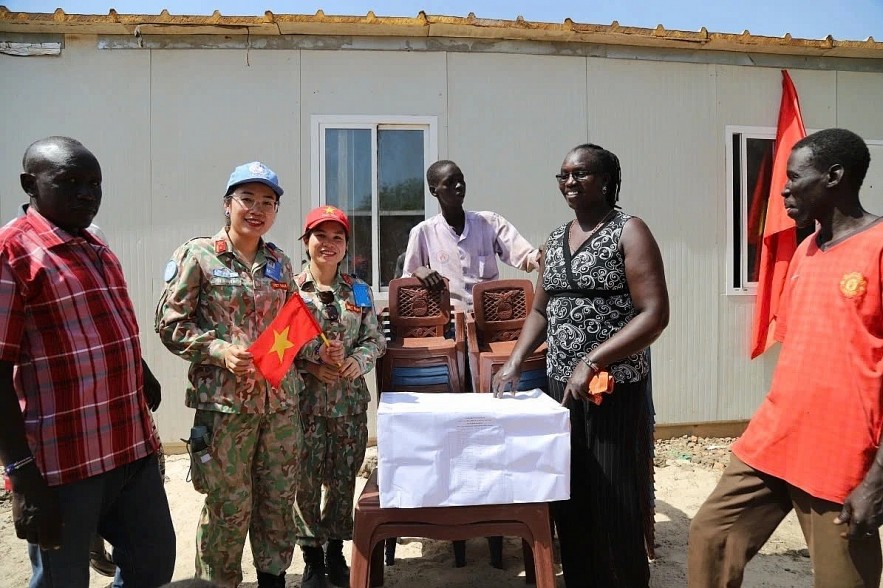 |
| Vietnam's 1st Engineer Team in Abyei (northern part of Sudan, where the UN Interim Security Mission area is administered). |
Vietnam has endured over a thousand years of continual resistance against foreign invaders. Consequently, the Vietnamese people deeply understand the loss brought by war and the immense value of peace. This understanding drives Vietnam to deploy forces to conflict and politically unstable regions as part of the global peacekeeping efforts, contributing to humanity's peace and stability. History professor Pham Hong Tung views the national flag carried by Vietnamese blue beret soldiers as a profound representation of cultural depth and national pride.
"Uncle Ho's soldiers assist communities in distress, carrying the national flag to signal to the world that while the Vietnamese people are renowned for their martial prowess, we fight to live in peace with humanity. This is extremely important," remarked Professor Pham Hong Tung.
Reflecting on history, Vietnam has experienced over 20 centuries of war against invasions, with 12 centuries of warfare alone. Few nations have such a glorious and turbulent history. Perhaps this is why the Vietnamese people cherish and yearn for peace, always seeking solutions to avoid war. This commitment was reaffirmed in the 2019 Vietnam National Defense White Paper, which states that Vietnam's defense policy is one of peace and self-defense, respecting the sovereignty of other countries.
Major General, Professor, Doctor Nguyen Hong Quan, former Deputy Director of the Institute of Defense Strategy, explained that Vietnam's peaceful, self-defense policy is evident in its practice of not waging war or invading others but retaining the right to self-defense when invaded and the right to respond forcefully when attacked. This policy is also reflected in the Vietnam Defense Strategy, which emphasizes the people's war concept: in wartime, the entire population becomes soldiers; in peacetime, a small army is maintained as the core of national defense.
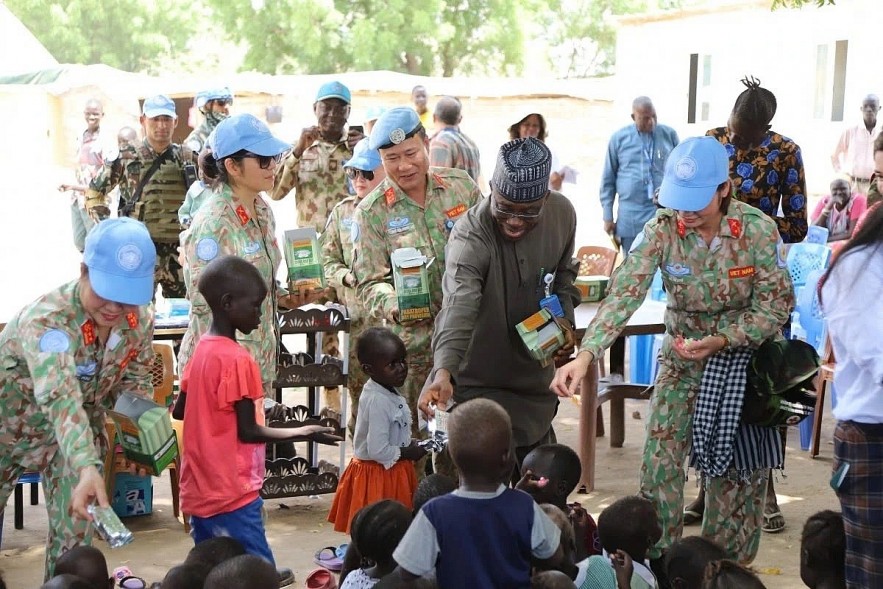 |
| Vietnamese blue berets give gifts to children in Abyei. |
Professor Nguyen Hong Quan commented, "For example, in the past 10 years, Vietnam's defense budget has never reached 3% of GDP. With such a limited budget, we ensure the provision of equipment and weapons for the army, training, and partially support the material and spiritual life of soldiers. The self-defense policy is evident in our persistent efforts to resolve all disputes and disagreements by peaceful means. This policy is also reflected in our focus on not purchasing strategic offensive weapons or developing nuclear weapons. Therefore, the weapons we possess today are for self-defense purposes only."
Emerging from war and enduring a long period of siege and embargo, Vietnam has gradually integrated into the world, including the sensitive area of defense cooperation. Through strategic direction and appropriate steps, defense diplomacy has created mechanisms for the Vietnam People's Army and related countries to resolve challenges and narrow differences through mutual understanding and negotiation. This approach helps Vietnam prevent the risks of conflict and war early and effectively. Consequently, Vietnam's defense diplomacy has made significant strides since the war.
Dr. Nguyen Minh Vu, former Deputy Minister of Foreign Affairs, stated, "Before the renovation, we had defense cooperation relations with 30 countries. Now, our defense cooperation has expanded to over 100 countries. We have established direct defense agencies in 33 countries and concurrent defense agencies in 41 countries and the United Nations. While not all cooperations involve arms procurement, most focus on enhancing political trust, sharing experiences, and fostering cooperation, creating common mechanisms to address shared security challenges."
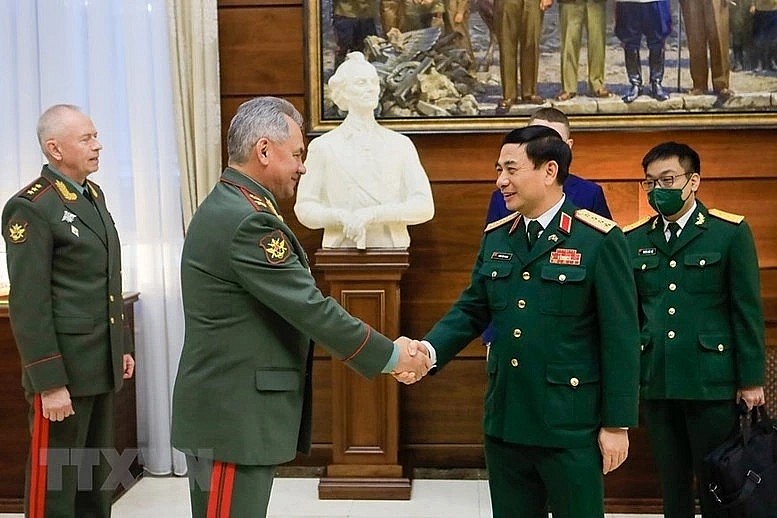 |
| General Phan Van Giang and General Sergei Shoigu, Minister of Defense of the Russian Federation in Russia in 2021. Photo: VNA |
Vietnam has always yearned for peace and envisions a world living in harmony. This sentiment was affirmed by General Phan Van Giang, Politburo member, Deputy Secretary of the Central Military Commission, and Minister of National Defense, during his address to the international community at the Shangri-La Dialogue in 2022.
"Throughout history, the Vietnamese people have endured numerous self-defense wars, suffering immense pain and loss. Even today, nearly half a century after the war, its consequences and legacy remain a burden for our country. Vietnam understands the value of peace, desires to maintain it, and is determined to preserve peace within the country. We are committed to protecting our independence, freedom, sovereignty, territorial integrity, and national and ethnic interests. We also wish for peace, freedom, prosperity, and happiness for the world, the region, and all countries and ethnic groups."
Recently, General Secretary To Lam delivered a speech at the Ho Chi Minh National Academy of Politics, discussing the new era of national development. He stated that the world is undergoing epochal changes, with the period from now until 2030 being crucial for establishing a new world order. This period presents significant strategic opportunities and marks the final stage of the Vietnamese revolution to achieve the 100-year strategic goal under the Party's leadership, laying a solid foundation for the nation's centennial founding. While these changes bring new opportunities, they also pose many challenges. To enter this era of growth, keep pace with the times, and integrate with international friends, Vietnam needs a peaceful and stable environment. This will allow the people to focus on economic development and national construction, attract investors, create jobs, and enhance the country's potential and position.
In the face of these great requirements and challenges, the army remains the core force to strengthen national defense, protect the Fatherland, maintain peace and stability, and support the nation in overcoming challenges for a strong and prosperous Vietnam.
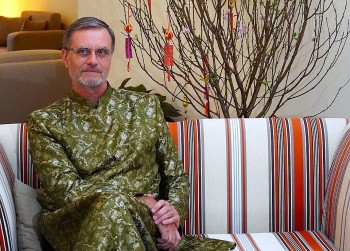 | French Ambassador Enchanted by Hanoi And Vietnamese Ao Dai In just over a year of working and living in Vietnam, French Ambassador Olivier Brochet has made a remarkable impression by quickly adapting to local ... |
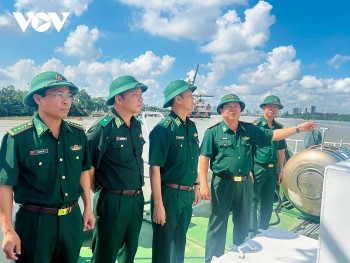 | 80 Years of Vietnam People's Army: Strength From People The practical experience of safeguarding the nation’s borders demonstrates that the "people's will" is the cornerstone of national border management and protection. For this reason, ... |
Recommended
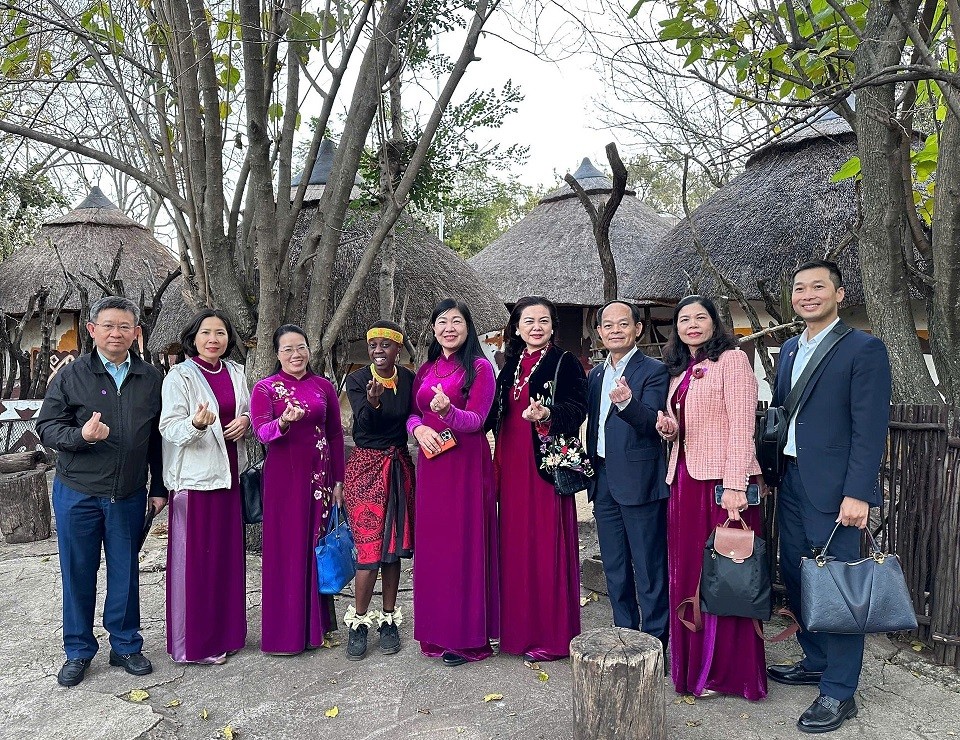 Viet's Home
Viet's Home
Hanoi, South Africa Strengthens People-to-people Exchanges, Expands Multi-sector Cooperation
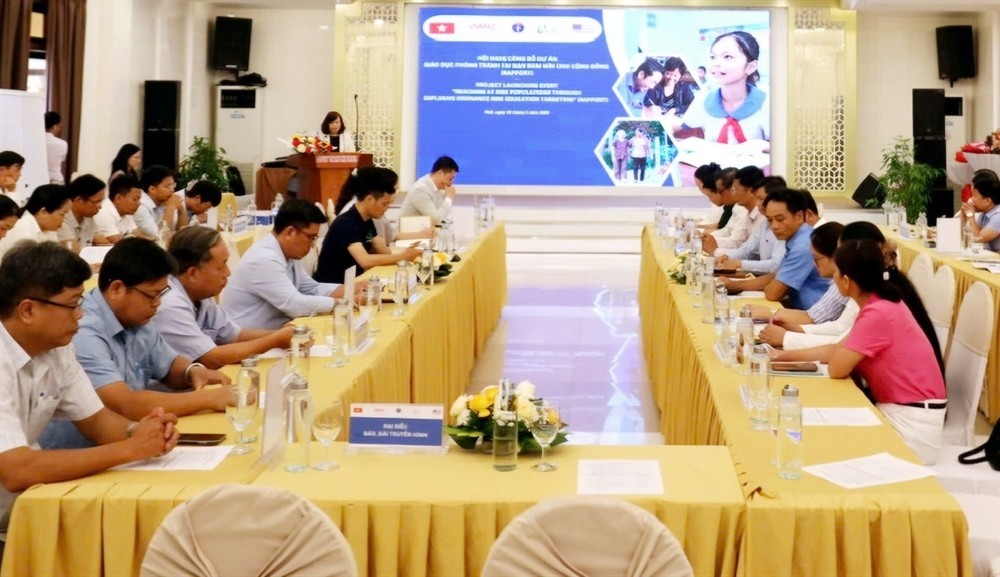 Viet's Home
Viet's Home
Hue City to Raise Awareness on Mine Accident Prevention
 Viet's Home
Viet's Home
“Global Vietnamese Singing 2025” - Connecting Hearts Longing for Homeland
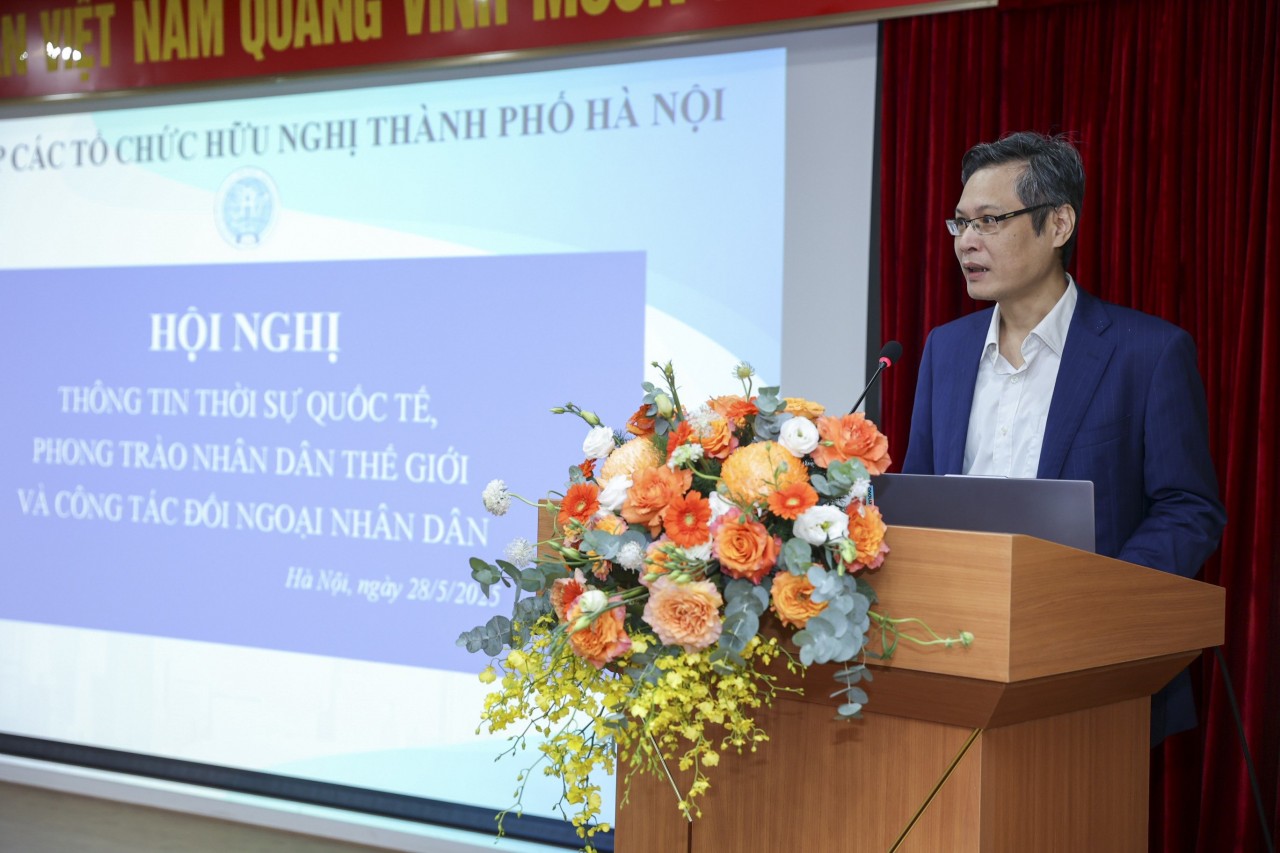 Viet's Home
Viet's Home
HAUFO Enhances Competence of People-to-People Diplomacy Personnel
Popular article
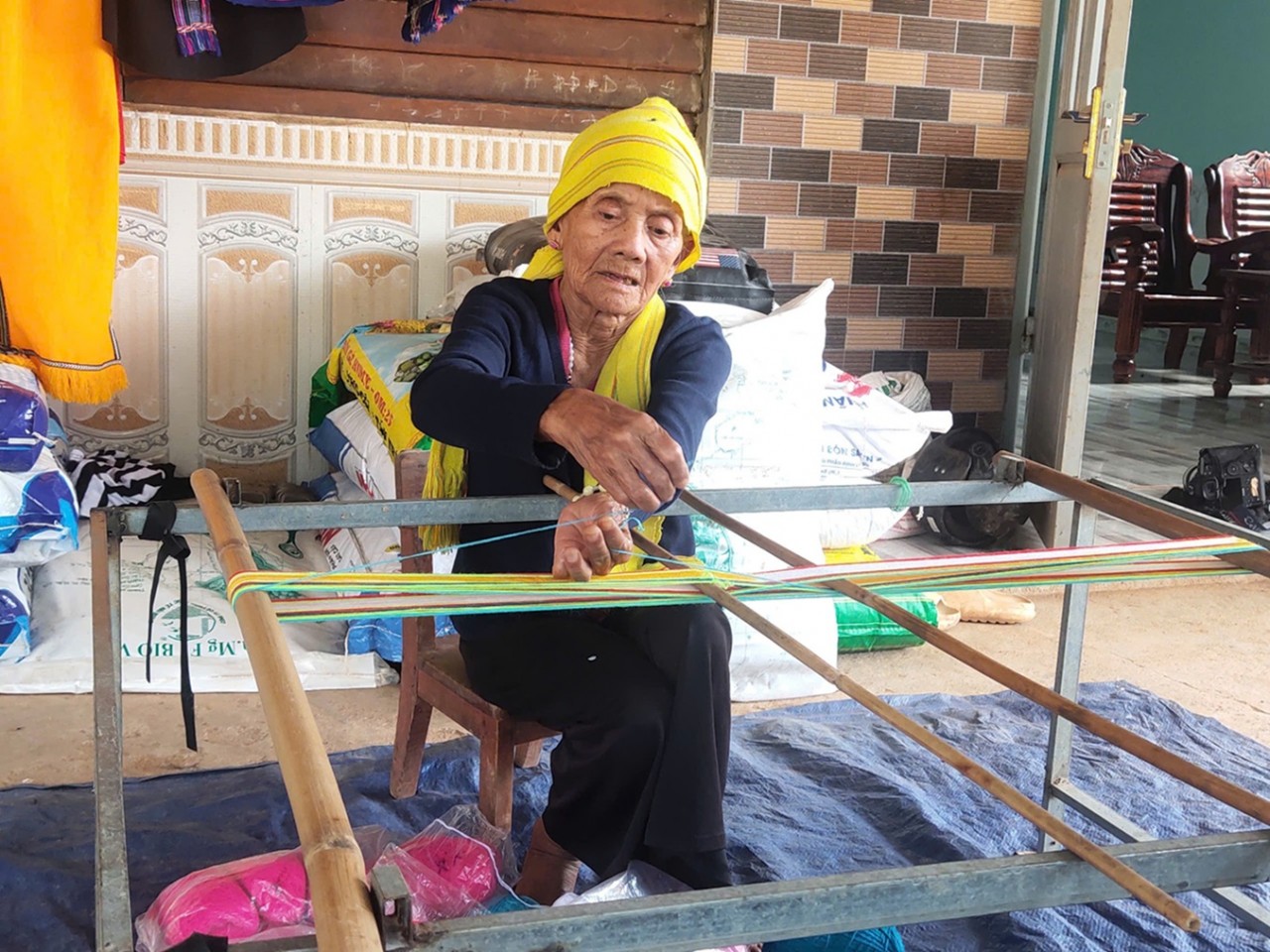 Viet's Home
Viet's Home
Hands that Reserve Da Long Brocade Craft
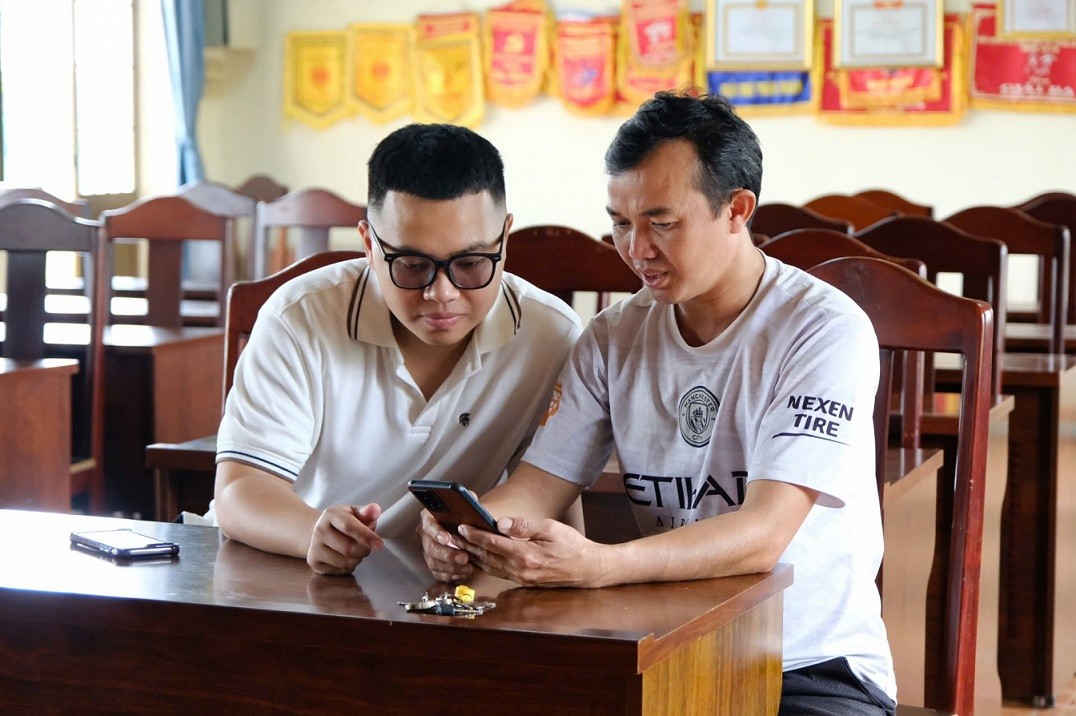 Viet's Home
Viet's Home
Da Rsal – How Digital Transformation Reshape a Poor Commune
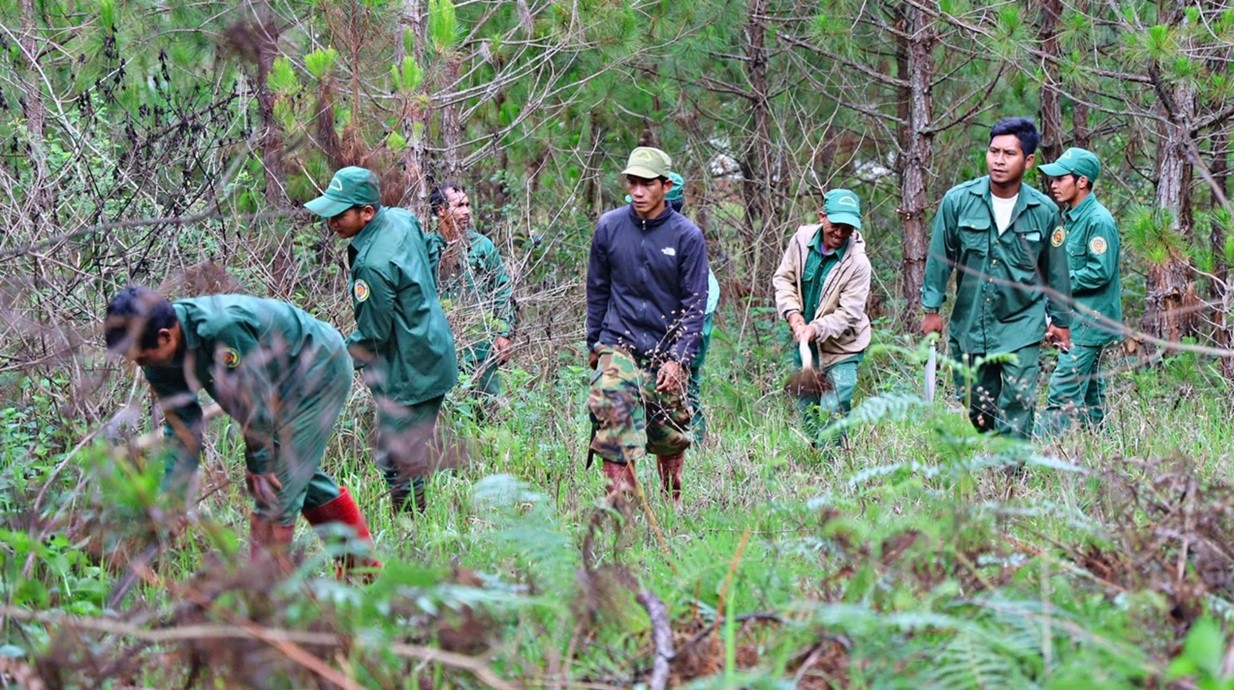 Viet's Home
Viet's Home
Vietnam Classified as “Low Risk” Under the EU Anti-Deforestation Regulation
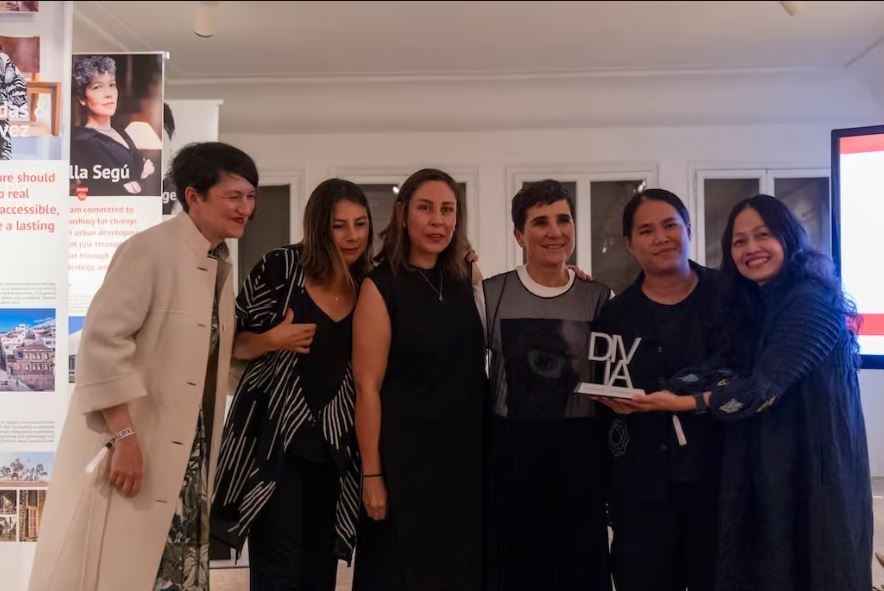 Viet's Home
Viet's Home






